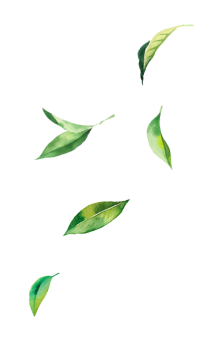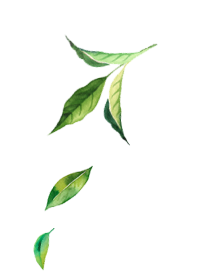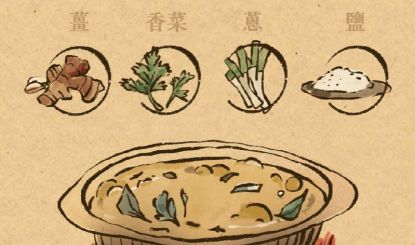




The View of Drinking Tea in Primitive Society

By/ Liu, Han-Chieh, founder of Chun Shui Tea Group
The tea plant (Camellia sinensis), according to research, has been present on Earth for over two hundred million years. Originally growing in Yunnan Province, it gradually spread to surrounding areas such as Guizhou and Sichuan, which are its marginal zones. While visiting Yunnan, someone captured images next to wild tea trees nestled deep in the mountains. These towering tea trees, standing as tall as two or three zhang (a traditional Chinese unit of length), suggested their age exceeded a thousand years. Legend has it that locals in Yunnan have a unique method of tea consumption. They harvest branches from these ancient trees, char them over a fire, tear them into pieces, and boil them in a teapot to create a leafy soup. Known for its bitter and astringent taste, this tea soup is considered challenging to swallow, even without experiencing its flavor firsthand.
No wonder, before the Tang Dynasty, dictionaries did not have the character for tea, only for “tu” (荼). The meaning of “tu” was bitter, causing suffering, indicating how bitter it was. The Classic of Poetry says: “Who says tea is bitter? Its sweetness is like a shepherd's purse”. After the bitterness, there is sweetness, which is the characteristic of tea. In order to eliminate its bitterness, adding something was natural. In tea-producing regions like Yunnan and Sichuan, locals devised a clever culinary innovation by cooking fresh tea leaves with rice to create tea rice. Though slightly bitter, this dish was both nourishing and healthful. Ancient wisdom recognized tea's efficacy in treating indigestion and diarrhea, common ailments resulting from excessive consumption of wild game.
Despite a limited understanding of tea's composition, ancient people valued its digestive and cleansing properties, particularly for the eyes. In regions where tea was abundant, leftover fresh leaves were boiled and compressed into cakes for extended preservation and easier transport to those in need. This practice contributed to the growing popularity of tea among the people of southwestern China, elevating its significance over time.
During King Wu of Zhou's victory over King Zhou, the chieftains of Sichuan tribes played pivotal roles, contributing soldiers and horses to the battles, thus cementing tea-producing regions' historical significance in ancient China. As King Wu ascended to rule over the entire nation, he bestowed the title of king upon the chieftain of Sichuan in recognition of his contributions. As a gesture of gratitude to the heavens, the Sichuan chieftain presented tea cakes as a gift, as documented in the Huayang Guo Zhi, or Records of the States by the Huayang Region (華陽國志.巴志). This gift introduced the Zhou people to a fresh and distinctive specialty, marking the beginning of tea's role in ceremonial offerings to heaven and earth and in rewarding meritorious individuals. With each passing year, the demand for tea increased, reflecting its growing importance in the region. During the Han Dynasty, a notable scholar referred to purchasing tea in the town of Shuangjiang, located in Pengshan, Sichuan, while drafting a contract to buy a slave. This scholar later ascended to the esteemed position of Adviser to the Emperor during the reign of Emperor Wu of Han. Since common people had a place to buy tea, it is evident that drinking tea was already quite common.
There is evidence to suggest that the practice of adding salt to tea originated in Sichuan. In Zigong, Sichuan, salt could be extracted from wells. It was later discovered, through the research of Su, Dong-Po, that adding salt to tea transformed its bitterness into sweetness, rendering tea more enjoyable.
During the Wei, Jin, Northern, and Southern Dynasties period, people in the southern regions already had the custom of preparing tea porridge, while it was relatively uncommon among those in the northern dynasties. One notable figure, Mr. Wang Su, a high-ranking official in the Northern Dynasties, was known for serving tea porridge to his subordinates. Despite finding it bitter, his subordinates dared not voice their discontent openly. Instead, they expressed their discomfort by likening the experience to “water disasters” (水厄), akin to the dread of floods. This metaphor implied that either the seasoning was inadequate or the taste was overly harsh and unpalatable. In an era characterized by the use of animal skins and hemp fabric, having tea porridge to drink signified a relatively comfortable lifestyle. Indeed, it's widely acknowledged that among the nomadic tribes beyond the borders, the value of tea was unparalleled. A single horse couldn't even fetch a single tea brick in exchange. Such was the indispensability of tea that not consuming it was simply unthinkable. The saying goes: “One day without tea leads to stagnation, two days hinder, and three days bring illness”. This reflects the profound importance of tea in daily life and the well-being of those living in these regions.
Wise emperors recognized the influence of tea and utilized it as a tool to manage unruly frontier populations. They implemented a strategy of rewarding obedience with more tea, reducing allocations for disobedience, and withholding tea as punishment for misconduct. This practice, known as “controlling the border with tea”, effectively regulated the behavior of border communities. By the Tang Dynasty, an official agency, the Tea Horse Bureau (茶馬司), was even established, responsible for the exchange of tea for horses. When nomadic tribes acquired tea bricks, they didn't enhance the flavor with spices like the Han people. Instead, they paired it with fresh milk and cheese, which they considered ideal. Would you dare to try it? Probably not. But for those born in ancient times within a Mongolian yurt, options were limited. It was a matter of drinking what was available. As the saying goes, “Finish this cup, and then you can leave!”
Expand your listening experience through the “Exploring Tea Culture Podcast”
▾▾▾Listen to the full episode▾▾▾
EP11. [Tea Doctor Shares Everything About Tea] Could It Be the Jay Chou Sang About the Wrong Dynasty? A Song About A Grandfather’s Tea, Understanding How Ancients Enjoyed Tea Feat. Liu, Han-Chieh (Gan Hou), CEO of Chun Shui Tea Group
Apple:https://reurl.cc/65y1RZ
Spotify:https://reurl.cc/kXVRbL
KKbox:https://reurl.cc/N0Xk8k
Soundon:https://reurl.cc/4rLkv2
MixerBox:https://reurl.cc/9VVLQj







